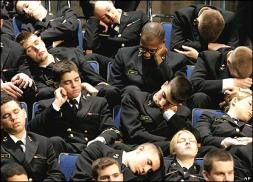During the last few years, the number of jobs available for foreign English teachers in Korean public schools has significantly decreased. According to an article on The Korean Observer, the number of foreign teachers has dropped from over 9,000 to 6,785 in three years. Meanwhile jobs at hagwons are becoming more competitive between foreigners. The question is whether these cuts are beneficial, or detrimental, for Korean students.
I currently work at a public middle school, but one which is recognised throughout Korea as having an impressive English programme; parents pay fees specifically for foreigners to teach their children. Needless to say foreign teachers are important to the school and their lessons are an important part of students’ timetables. And I think having such a system which incorporates foreign teachers is invaluable.
 There are a number of reasons why. Firstly, because Korean teachers can focus too much upon English grammar, rather than speaking and writing, so that their students can perform well on tests. I recently read this article on Korea Times, which states that 7 out of 10 middle/high school students are unsatisfied with their English lessons because they’re too ‘test-orientated.’ Of course it’s important for students to score well, but it’s also essential that they can hold a good conversation and write well in English. As such, lessons with foreign teachers, held entirely in English, can greatly help to improve conversational skills.
There are a number of reasons why. Firstly, because Korean teachers can focus too much upon English grammar, rather than speaking and writing, so that their students can perform well on tests. I recently read this article on Korea Times, which states that 7 out of 10 middle/high school students are unsatisfied with their English lessons because they’re too ‘test-orientated.’ Of course it’s important for students to score well, but it’s also essential that they can hold a good conversation and write well in English. As such, lessons with foreign teachers, held entirely in English, can greatly help to improve conversational skills.
Secondly, there are some mistakes which Korean teachers make, or don’t pick up on when their students make them. The Korea Times article mentions that some Korean teachers don’t have the English ability to teach well enough; they aren’t re-trained and don’t have their English skills evaluated properly. And while I’m not implying that Korean-English teachers are incompetent, there are errors made, even if they’re tiny ones. Errors that perhaps only native English speakers pick up on and correct. Here are some example of mistakes I hear daily from students (and teachers):
- The use of stressed/ stressful/ stress: “I feel very stressful” “Homework is very stressed”
- The word ‘funny’ instead of ‘fun’: “Skiing is very funny” “My vacation was very funny”
- The word ‘comfortable’ instead of ‘convenient’: “My smart phone is very comfortable”
- Pronunciation to add ‘ee’ sound on the end of words: “Finishee” “Changee”
- The word ‘until’ being used instead of ‘at’: “Until 3 pm, you can go home”
Mistakes like these may not stop someone understanding the speaker (apart from the use of the word ‘until’, which has confused me numerous times), but they prevent even the smartest students from speaking perfectly. And for this reason, having a foreign teacher to correct mistakes is extremely beneficial.
 Understanding different accents is also important; American/ Canadian teachers are the most popular in Korea, because their accents are easier to understand. As I’m English, the problem with my accent came up when I was interviewed for jobs, and I didn’t think it would be a problem at all when teaching, but I was wrong. Time and time again, students and Korean friends have found my accent difficult to understand. Similarly South African accents, Australian, New Zealand, Irish, Scottish, or Welsh. But it’s important that Koreans can understand English speakers with different accents; what’s the point in speaking English fluently if you travel to Britain but can’t understand anyone? Or if you only understand the Korean-English accent of a Korean teacher.
Understanding different accents is also important; American/ Canadian teachers are the most popular in Korea, because their accents are easier to understand. As I’m English, the problem with my accent came up when I was interviewed for jobs, and I didn’t think it would be a problem at all when teaching, but I was wrong. Time and time again, students and Korean friends have found my accent difficult to understand. Similarly South African accents, Australian, New Zealand, Irish, Scottish, or Welsh. But it’s important that Koreans can understand English speakers with different accents; what’s the point in speaking English fluently if you travel to Britain but can’t understand anyone? Or if you only understand the Korean-English accent of a Korean teacher.
There are numerous positives of having foreign teachers in public schools. However, there are ways in which I’d agree things can be improved. Mainly, the fact that English lessons taught by foreigners can be seen by students as somewhat of a ‘novelty’ and aren’t taken as seriously as other classes. In my case, foreign teachers aren’t involved in English exams, we give no homework and as for discipline, we don’t have much authority: we can’t speak to parents ourselves, and we don’t have the same respect as the Korean teachers, so any stern-words aren’t taken too seriously.
Moreover, despite the fact that parents pay a lot of money for us to teach their children, we’re constantly told to ‘play games’ and ‘keep the children happy’ rather than have a strict academic lesson. Of course it’s important to have fun, but if foreign teachers taught in the same way as Korean teachers, having tests, giving out homework, and keeping the focus on structured learning, students could learn more.

Given the benefits, it would be detrimental to students to further decrease the number of foreign teachers. There may still be native English speakers working in hagwons, but not all students attend hagwons, and so some will miss out on valuable teaching. I don’t think it’s any coincidence that the most fluent students are those who have travelled to English-speaking countries to learn the language: this alone proves how useful time spent with native-English speakers can help English ability.
No matter how good a Korean-English teacher may be, it’s a bonus for students to interact with, and be taught by, foreigners, and I hope that ten years from now, there’ll still be foreign teachers in Korean public schools.


















